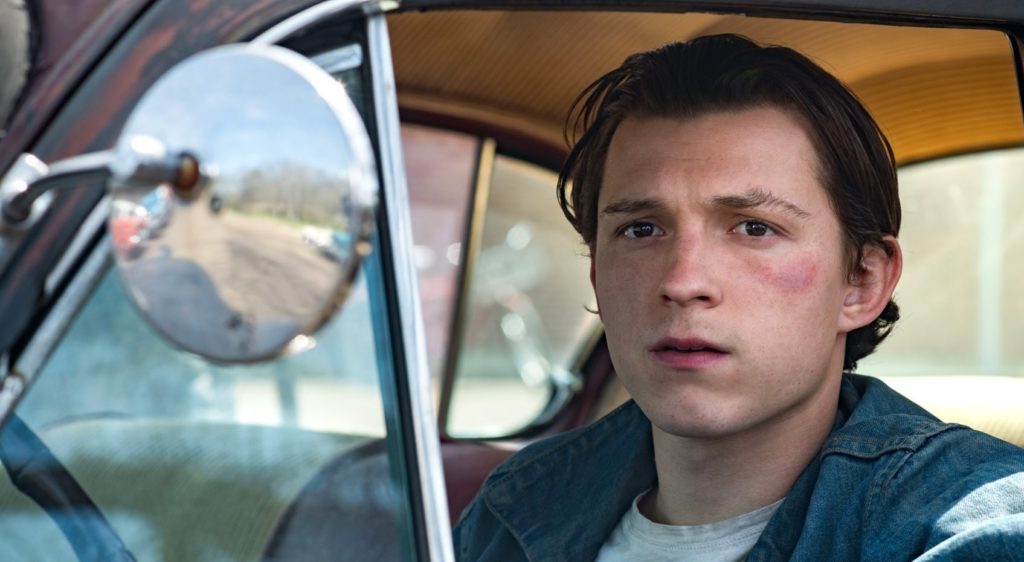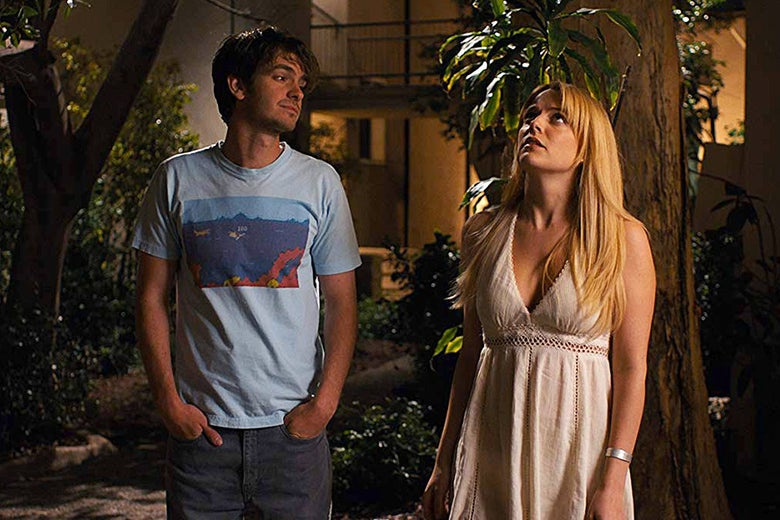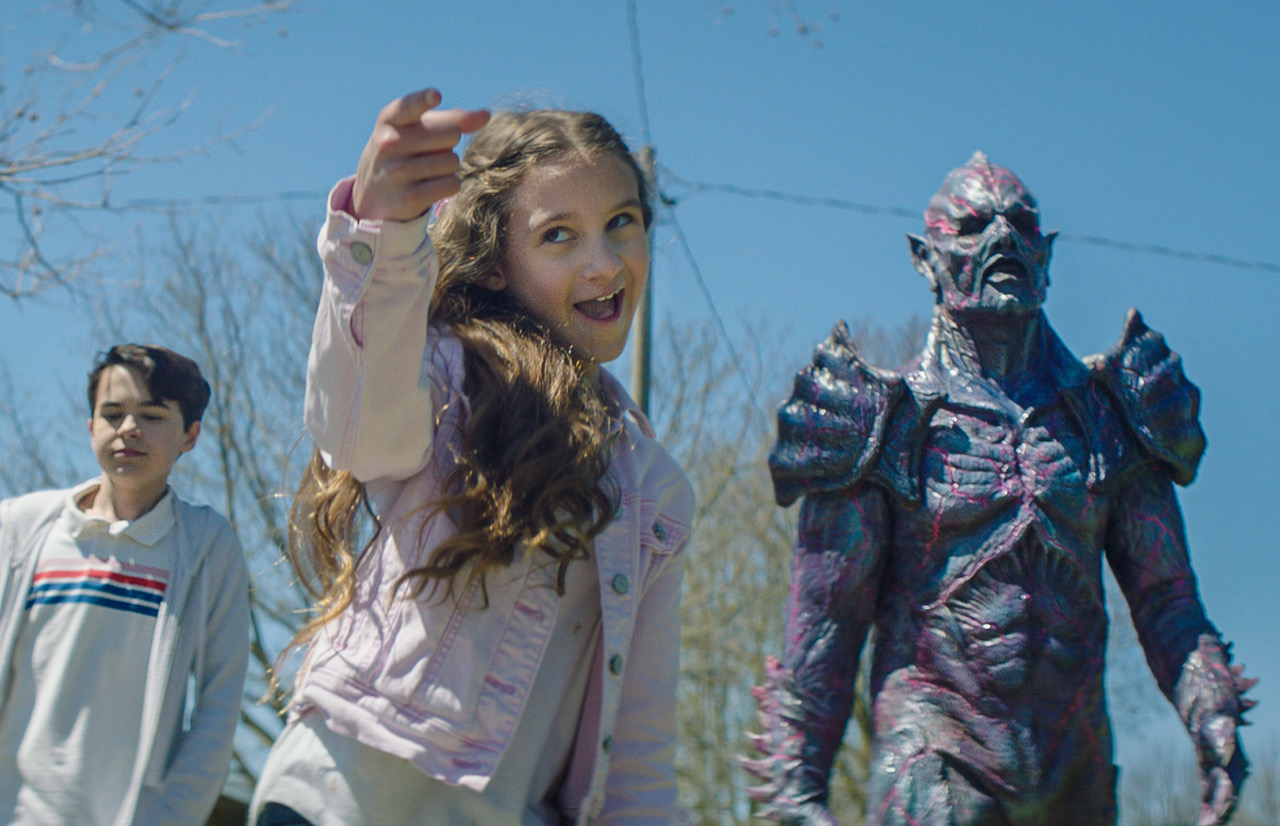
If there were ever a cinematic equivalent to getting punched in the gut, it’s The Devil All the Time. The breathtaking and paralyzing film puts its characters through many harrowing ordeals, and they just keep getting darker and more dangerous with each new entry. When you think it couldn’t get any worse, The Devil All the Time goes and does just that; it gets worse. Much worse.
The film revolves around Arvin Russell (portrayed by Tom Holland in later-day scenes). As we see in the film’s opening act, he tragically loses his parents (Bill Skarsgård and Haley Bennett) at a young age while living in southern Ohio. Arvin then moves to a small town in West Virginia, where he grows up with his grandmother (Kristin Griffith) and another orphaned child who is raised as his sister (portrayed by Eliza Scanlen in later-day scenes). Reaching his late-teens in 1965, he finds himself facing unrelenting evil. Encounters with high school bullies, a sleazy southern preacher (Robert Pattinson), a serial-killing couple (Jason Clarke and Riley Keough), and a crooked sheriff (Sebastian Stan) all send Arvin on a downward trajectory where the violence of his past meets the reality of his present.
Based on Donald Ray Pollock’s bestseller, The Devil All the Time is a refreshingly novelistic film. It unravels in a sprawling, organic fashion without relying on a typical story structure. The characters are given time to live and breathe onscreen, regardless of whether or not they are pushing the narrative forward. The film’s old-fashioned and literary voice-over narration (performed by Pollock) never feels like a crutch. It provides enriching glimpses into the characters’ interior lives, revealing fully drawn and complex motivations behind their actions.
Though it has traces of quirky dark humor that is reminiscent of the Coen Brothers, the film is primarily dominated by a dead-serious and naturalistic tone. Cowriter/director Antonio Campos doesn’t try to distract us with any stylistic flourishes. His direction is so matter-of-fact that it’s almost blunt, which is exactly what the material needs to succeed onscreen as it does.
The Devil All The Time is an unapologetically violent film, but it never feels exploitative. Violence is a part of the characters’ reality, a fact of life in the world they inhabit. The violence in the film is abrupt, sloppy, and shocking without a hint of sensationalism. Campos doesn’t revel in the gruesome details; he simply presents them in a realistic and honest fashion.
There isn’t a weak link in the film’s stellar ensemble cast. Tom Holland more than proves he can carry a movie without his Spider-suit. He is vulnerable, intense, and wholly sympathetic as his character falls deeper into hell. Robert Pattison further proves his seemingly endless versatility as the high-voiced, ill-intentioned preacher. Eliza Scanlen (Sharp Objects) provides excellent support as Holland’s stepsister. Her graceful and childlike presence reminds us that her character is the film’s one true representation of innocence.
As dark and ugly as it gets, The Devil All the Time is a surprisingly profound film. It explores damaged lineage and the lingering effects of violence in the frankest and most uncompromising manner imaginable—but still manages to be oddly hopeful in the end. The Devil All the Time may not be the most pleasant movie released this year, but it’s easily one of the most unforgettable.
GRADE: A



